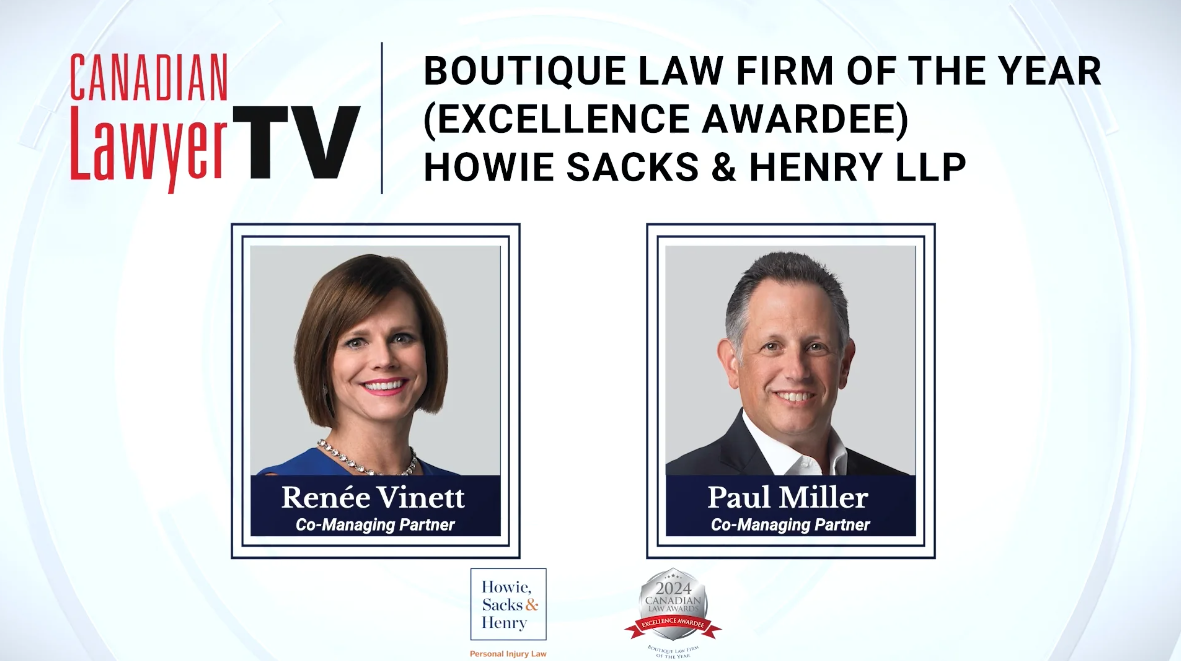Last week, the Ontario Court of Appeal certified Lipson v. Cassels Brock & Blackwell LLP as a class proceeding, reversing a lower court decision dismissing the entire case on the basis that the proposed class’ limitation period had expired.
In certifying this action, the Court of Appeal found there simply was not enough evidence on the record at the motion for certification to make a determination as to whether the action was statute-barred. This decision reflects an inherent limitation on addressing evidence-based defences on the motion for certification, which was designed to be purely procedural in nature.
Lipson is a class action brought by Jeffrey Lipson on behalf of about 900 other Canadian taxpayers participating in a tax-reduction scheme. The marketing of the scheme included a tax opinion prepared by the defendant Cassels Brock & Blackwell LLP. The Cassels Brock opinion provided that it was unlikely the Canada Customs and Revenue Agency could successfully deny the tax credits received by the class members pursuant to the tax reduction scheme.
Between 2000 and 2003, Lipson and the class members donated resort timeshares and cash to Canadian amateur athletic associations. The net result of the tax reduction scheme was the participants would receive a net return on their cash donations of about 35 per cent. Although the issued charitable receipts for each participant in the scheme totaled between $13,275 and $28,600, the Canadian amateur athletic associations to whom the donations were made only benefited by about $1,300 per donated timeshare week.
In 2004, the Canada Revenue disallowed the anticipated tax credits. In 2006, some of the participants commenced litigation against the CCRA as test cases to determine the availability of the tax credits for the donations. In 2008, the test cases settled, and Revenue Canada allowed the participants to receive a tax credit representing the cash portion of the donation. However, the participants were denied the greater portion of the anticipated tax credit based on the value of the donated timeshare.
In 2009, Lipson brought the class proceeding against Cassels Brock for damages for negligence and negligent misrepresentation. At the motion for certification, the defendant argued that the claims of all the class members were statute-barred pursuant to the Limitations Act, which imposes a two-year limitation period on Lipson’s claims.
Justice Paul Perell, the motion judge, held that although Lipson’s action satisfied the criteria for certification, it was brought out of time. He held the class members discovered or should have discovered their tort claims against Cassels Brock when the validity of the tax credits was denied by Canada Revenue in 2004. At that time, held Perell, the class members knew or ought to have known the material facts on which their claims were based. Since the action was not brought until five years had elapsed from the time the tax credits were denied, the judge held Lipson’s action was statute-barred.
On appeal, justices Stephen Goudge and Janet Simmons for the court found the motion judge erred in finding that Revenue Canada’s challenge to the claimed tax credits was determinative of when the class members reasonably ought to have known they had suffered a loss as a result of a breach of the standard of care on the part of Cassels Brock.
The Court of Appeal held the answer to when the limitation period began to run for each class member may well depend on several factors individual to each class member, depending on what individual class members were told and when. Without a full factual record, it would be impossible to determine whether these factors influenced when the limitation period began to run. With respect to Lipson, the Court of Appeal found his pleadings did not demonstrate that prior to 2008, he knew that Revenue Canada’s challenge to his claimed tax credits would likely be successful.
Lipson reinforces the interpretation of the certification motion as merely a procedural hurdle. This characterization of the certification test is in the best interests of both the plaintiff and the defendant, as it will result in lower costs to the parties as well as the expeditious resolution of this stage of the proceedings, which is what the drafters intended.
In certifying this action, the Court of Appeal found there simply was not enough evidence on the record at the motion for certification to make a determination as to whether the action was statute-barred. This decision reflects an inherent limitation on addressing evidence-based defences on the motion for certification, which was designed to be purely procedural in nature.
Lipson is a class action brought by Jeffrey Lipson on behalf of about 900 other Canadian taxpayers participating in a tax-reduction scheme. The marketing of the scheme included a tax opinion prepared by the defendant Cassels Brock & Blackwell LLP. The Cassels Brock opinion provided that it was unlikely the Canada Customs and Revenue Agency could successfully deny the tax credits received by the class members pursuant to the tax reduction scheme.
Between 2000 and 2003, Lipson and the class members donated resort timeshares and cash to Canadian amateur athletic associations. The net result of the tax reduction scheme was the participants would receive a net return on their cash donations of about 35 per cent. Although the issued charitable receipts for each participant in the scheme totaled between $13,275 and $28,600, the Canadian amateur athletic associations to whom the donations were made only benefited by about $1,300 per donated timeshare week.
In 2004, the Canada Revenue disallowed the anticipated tax credits. In 2006, some of the participants commenced litigation against the CCRA as test cases to determine the availability of the tax credits for the donations. In 2008, the test cases settled, and Revenue Canada allowed the participants to receive a tax credit representing the cash portion of the donation. However, the participants were denied the greater portion of the anticipated tax credit based on the value of the donated timeshare.
In 2009, Lipson brought the class proceeding against Cassels Brock for damages for negligence and negligent misrepresentation. At the motion for certification, the defendant argued that the claims of all the class members were statute-barred pursuant to the Limitations Act, which imposes a two-year limitation period on Lipson’s claims.
Justice Paul Perell, the motion judge, held that although Lipson’s action satisfied the criteria for certification, it was brought out of time. He held the class members discovered or should have discovered their tort claims against Cassels Brock when the validity of the tax credits was denied by Canada Revenue in 2004. At that time, held Perell, the class members knew or ought to have known the material facts on which their claims were based. Since the action was not brought until five years had elapsed from the time the tax credits were denied, the judge held Lipson’s action was statute-barred.
On appeal, justices Stephen Goudge and Janet Simmons for the court found the motion judge erred in finding that Revenue Canada’s challenge to the claimed tax credits was determinative of when the class members reasonably ought to have known they had suffered a loss as a result of a breach of the standard of care on the part of Cassels Brock.
The Court of Appeal held the answer to when the limitation period began to run for each class member may well depend on several factors individual to each class member, depending on what individual class members were told and when. Without a full factual record, it would be impossible to determine whether these factors influenced when the limitation period began to run. With respect to Lipson, the Court of Appeal found his pleadings did not demonstrate that prior to 2008, he knew that Revenue Canada’s challenge to his claimed tax credits would likely be successful.
Lipson reinforces the interpretation of the certification motion as merely a procedural hurdle. This characterization of the certification test is in the best interests of both the plaintiff and the defendant, as it will result in lower costs to the parties as well as the expeditious resolution of this stage of the proceedings, which is what the drafters intended.






